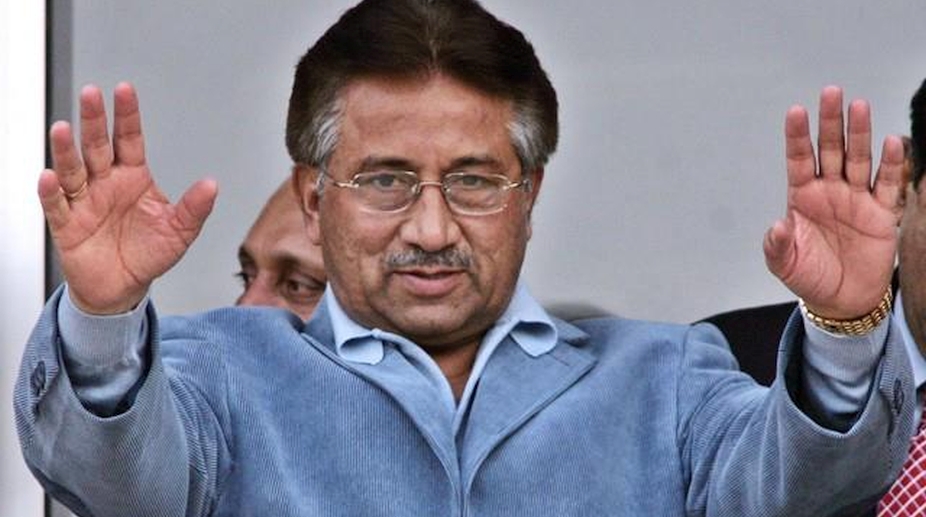Pakistan’s former military leader Pervez Musharraf passes away
Former chief of Army Staff and President of Pakistan, Pervez Musharraf passed away on Sunday at American Hospital in UAE after a prolonged illness, reported Daily Pakistan.

Former Pakistani President Pervez Musharraf (PHOTO: Twitter)
Unwittingly or otherwise, Pakistan’s former army chief and military dictator, Pervez Musharraf, may have tacitly condoned the activities of Hafiz Saeed’s JuD and the outlawed Lashkar-e-Taiba, verily the dramatis personnae of the Mumbai catastrophe (26 November 2008). He has let it be known that he is “open to forming a political alliance” both with Hafiz and LeT and has thus emitted a signal that is bound to raise eyebrows, and not merely in the subcontinent.
It is far from clear whether the two militant groups, much in the manner of India’s Maoists, have a scintilla of faith in elections. With a studious sense of timing, Musharraf has disclosed his preference soon after the release of Hafiz and exactly 72 hours after the latter unveiled his political ambition by declaring that the Jammat-ud-Dawah would contest next year’s general election under the banner of Milli Muslim League. Even within the country, the former President’s statement has been binned as “outrageous”, even “fantastical nonsense”.
The GHQ in Rawalpindi is yet to react, but it cannot but be astonished by the former arny chief’s misadventure. Nor for that matter have Hafiz or the LeT leadership responded to the overture. He has kept both the military and the political class guessing over the provocation behind the announcement, though it is pretty obvious that the move comes after several parties have dissociated themselves from his very own Awami Ittehad alliance.
Advertisement
Far from alluding to the JuD/LeT potential to foment terror, he has referred to the two entities as “NGOs working for the welfare of the community”. Social activists in Pakistan must be aghast at so strained a justification of a fraught electoral strategy. Direly inexplicable must be his turnaround not least because as President he had initiated several steps to rein in the militants. Notably, he had outlawed certain groups with clampdowns.
In the years since he relinquished authority, both JuD and LeT have perpetrated terrorism with far greater ferocity. It is hard not to wonder whether or not Musharraf is winking at fundamentalism or endorsing its role in statecraft. Quite a turnaround for an army chief who once referred to his uniform as his “second skin” and harped on the imperative of a “moderate Pakistan” as distinct from a theocratic agenda.
Not that Musharraf is unaware of the damage that the militants have wrought to Pakistan’s economy with the country under the shadow of the terrorist gun from his heyday to the present. It is a politically bankrupt nation, with the ruling party’s leader fighting his battles in court.
Whether or not the proposed alliance between Musharraf and the militants fructifies need not detain us here. What matters most of all is that as the former army chief, Pakistan expects him to be more restrained… and not reckless. He has played to the terrorist gallery by saying that “what is happening in Kashmir should not be termed as terrorism”. Not everyone in Pakistan will readily concur.
Advertisement